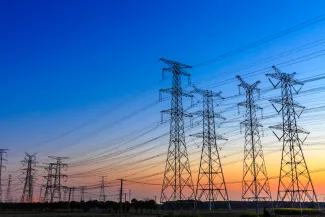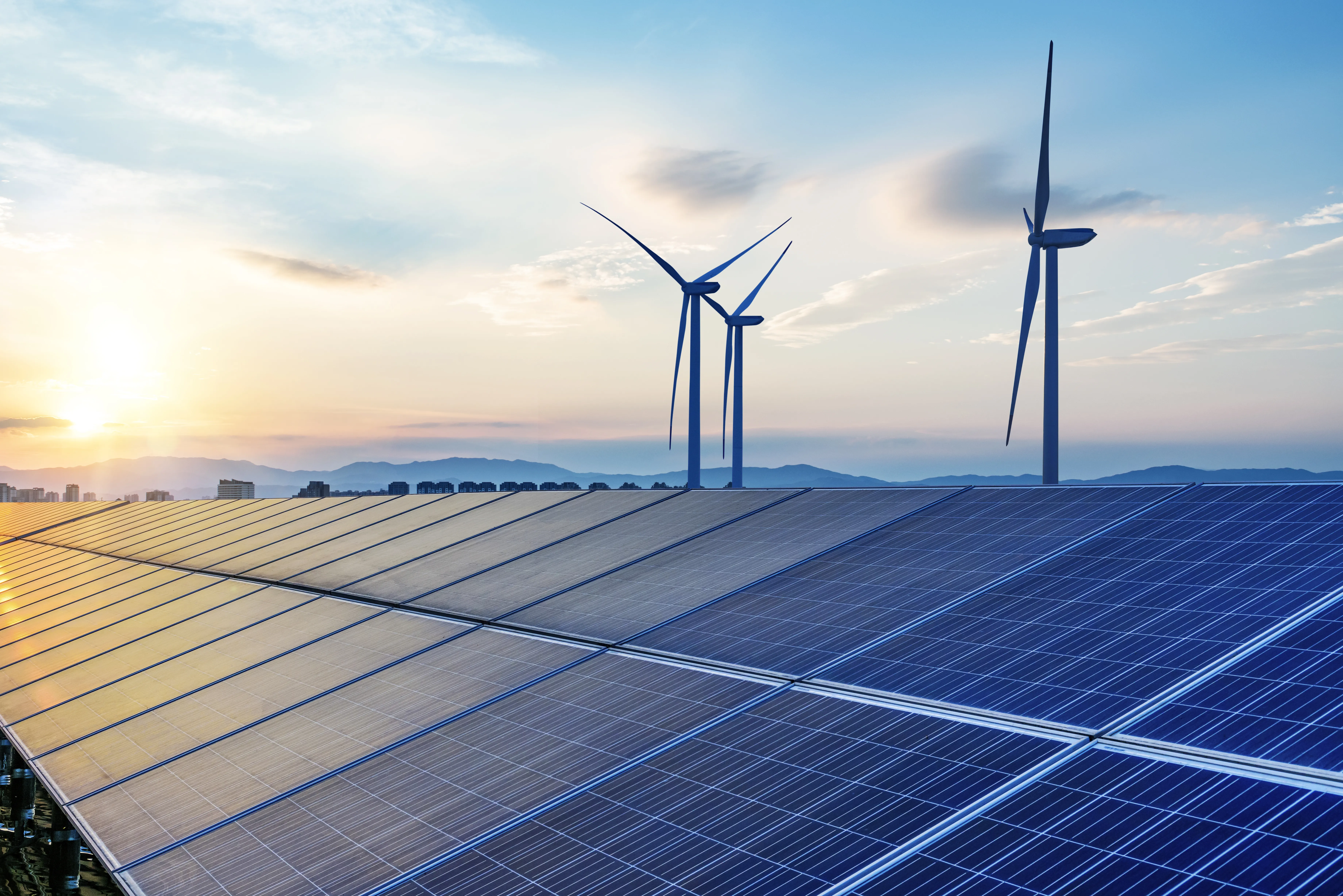
Commentary - A new unifying issue: Just about everyone hates data centers
This article originally appeared on Inside Climate News, a nonprofit, non-partisan news organization that covers climate, energy and the environment. Sign up for their newsletter here.
It’s not a novel observation to say that supporters of President Donald Trump and supporters of U.S. Senator Bernie Sanders find common ground on many issues. They often share a skepticism of entrenched power and a desire to dismantle systems that they think have ceased to serve everyday people.
In Indiana, this agreement includes a distrust of data centers.
“The MAGA crowd and the Bernie bros have both figured out that they’ve been getting duped,” said Kerwin Olson, executive director of Citizens Action Coalition, an Indianapolis-based consumer and environmental advocacy nonprofit. “It was data centers that really brought it all together.”

© metamorworks . iStock-968113166
Olson’s organization is running a campaign to persuade Indiana lawmakers to place a moratorium on new data centers and to redesign electricity rates to protect residential consumers from rate increases related to data center development.
He has received an emphatic response, with groups from the left, right and in-between booking him for speaking engagements and offering their assistance.
Election results last week confirm a similar dynamic in much of the country. Democrats won races for governor in New Jersey and Virginia and for two open seats on the Georgia Public Service Commission, campaigns in which data centers and rising electricity costs were issues. Media outlets noted this pattern, including in an insightful report from Jael Holzman of Heatmap and a look ahead to next year’s elections from Marc Levy and Jesse Bedayn of the Associated Press.
Much of the discussion is about data centers, which are often large developments used to support cloud computing or artificial intelligence. But the underlying issues are broader, touching on the power of tech companies. For people who live near proposed data centers, there is an additional sense of powerlessness, which Inside Climate News has documented across the country, including the backlash to a plan for a huge data center in Bessemer, Alabama.
“It’s about big tech,” Olson said. “To steal Bernie’s words, [it’s about] these big tech oligarchs that are calling all the shots at every single level of government right now.”
I also see some similarities with local opposition to large wind and solar projects, a subject I’ve written a lot about over the years. A common theme is that residents feel frustrated when powerful companies want to make changes that would alter local landscapes.
Olson said he agrees that there is some overlap between opposition to data centers and large renewable energy development, but he views the latter as more of a rural phenomenon, while concern about data centers is rising almost everywhere.
Google scrapped its plans for a large data center in Indianapolis in September amid local backlash. In northwest Indiana, residents in the small city of Hobart have organized to oppose two data centers, raising concerns about the projects’ electricity and water consumption.

© zhaojiankang - iStock-802436842
It’s notable that the opposition tends to highlight concerns about high electricity bills, but doesn’t talk as much about data centers’ negative climate impacts. Indiana can see the ramifications as officials push to delay the retirement of coal-fired power plants so the state can meet an expected surge in electricity demand, driven, in part, by data centers.
Political candidates can harness this mounting opposition and data center companies will need to devote more resources to engaging with the public.
Vivek Shastry, a senior research associate at Columbia University’s Center on Global Energy Policy, told me that it’s important for the AI and data center industries to find ways to provide local benefits to host communities and to minimize any negative effects on household electricity costs.
He touched on these subjects in a recent blog post, co-written with his colleague Diana Hernández. When I read this, my first thought was, “Wait, there are local benefits?”
He explained that there are opportunities in terms of energy and money. He pointed to examples in Denmark and Finland of data centers harnessing their waste heat to contribute to district heating systems for local communities.
Beyond that—which I think would be a challenge to do in the United States—he said AI and data center developers can make community benefits part of their proposals. This could mean working with local leaders to find ways to address local needs through philanthropy.
“To the extent that there is a partnership with communities, and there are these pathways to enable tangible co-benefits,” he said.
The opposite can also be true, with local communities feeling like they are bearing the burden of a data center with few, if any, benefits.
Shastry’s larger point is that government officials and corporate leaders need to make sure that development does not harm the most vulnerable consumers by driving up costs of water and electricity. To do otherwise would feed into consumer unrest.
“It’s important to get those processes and protections right early on, because the pace of this growth is such that once you lock into certain kinds of rates and other pathways, it then becomes harder to reverse,” Shastry said.
Voters are already getting upset about electricity rate increases that they blame on data centers, even though the AI industry is in its infancy. The negative effects, if left to fester, could get much worse.
But there also is evidence that state officials have a sense of the challenge before them. The NC Clean Energy Technology Center at North Carolina State University shows this in its most recent quarterly report, the 50 States of Power Decarbonization.
From July to September, state regulators or legislators took 55 actions in 29 states related to laws or rules for large electricity users, which were usually motivated by the growth of data centers.
Some highlights:
- The Public Utilities Commission of Ohio approved a proposal from the utility American Electric Power to create a new rate category for data centers that have electricity demand of at least 25 megawatts. Businesses in this category have special requirements, including that they must sign a 12-year contract. The practical effect is that data centers that close or use much less power than planned will still need to pay, which can help to shield other customers from covering the costs of lines and other infrastructure built to serve these large projects.
- Florida Power & Light, a utility, entered into a settlement with other parties in a rate case that includes new rate categories for large power users such as data centers. The rates would cover new projects that need at least 50 megawatts, with provisions requiring companies to pay even if they use less power than planned. The Office of Public Counsel has said the settlement is “disproportionately favorable” to corporate interests.
- In Delaware, the Public Service Commission staff and the Division of the Public Advocate jointly requested that the utility, Delmarva Power and Light, institute a new rate category for customers that need at least 25 megawatts. Delmarva responded by saying it would like the commission to hold a hearing on the subject.
As recently as two years ago, there was almost no activity in this policy area. Next year at this time, I expect to see action in nearly every state.
















